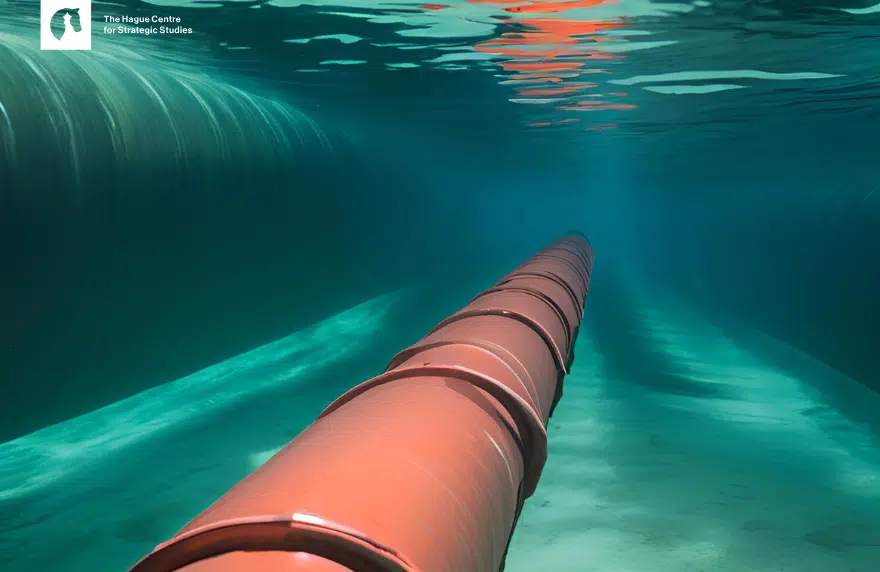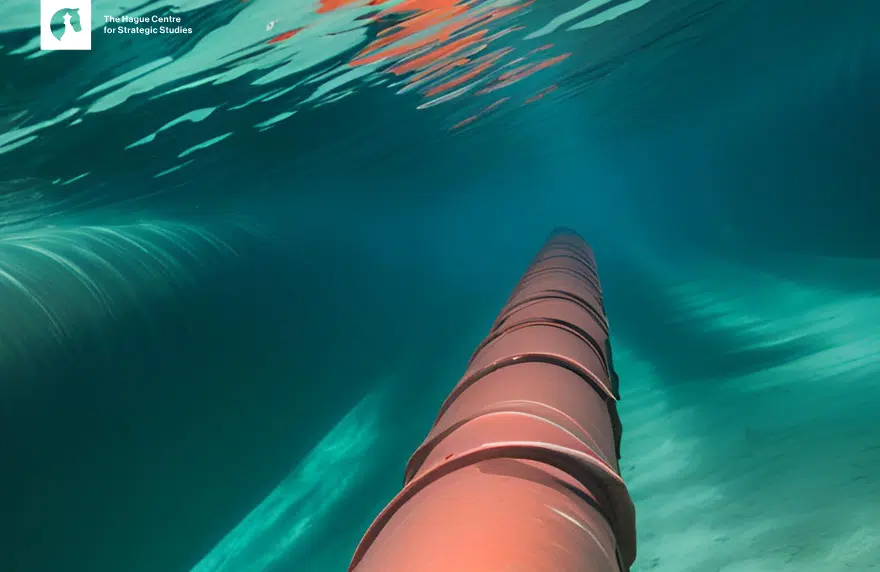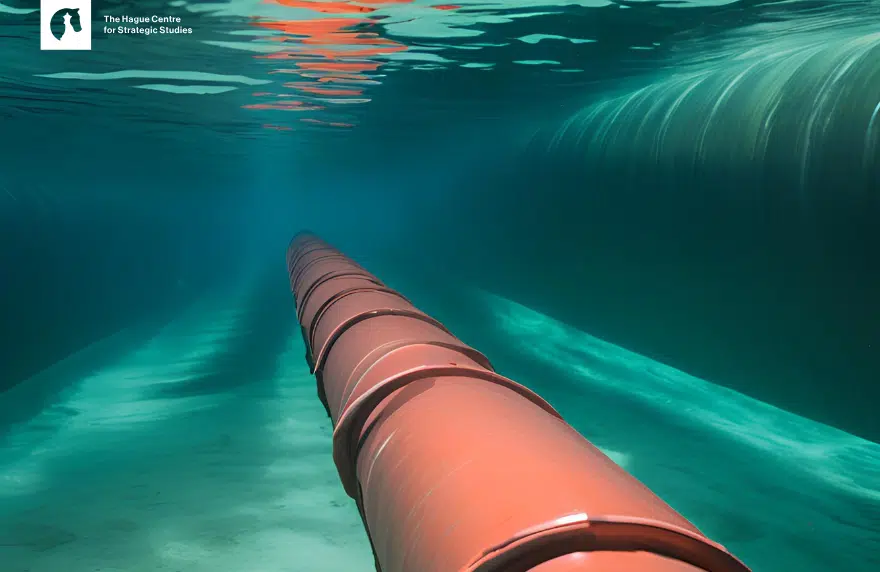Research
Modern societies rely heavily on submarine cables and pipelines for internet connectivity and energy supply, yet international law provides minimal protection for these vital infrastructures beyond territorial waters. The existing legal framework, rooted in the 1884 Paris Convention, offers only limited enforcement tools, leaving critical offshore infrastructure vulnerable to sabotage, hybrid warfare, and accidental damage.
In a new HCSS guest paper, Alexander Lott examines unconventional legal approaches to closing this security gap. The paper explores how coastal states can lawfully interdict ships suspected of damaging underwater infrastructure under peacetime maritime law enforcement.
The proposed measures stem from a range of legal concepts, including:
- Piracy and terrorism laws, which could help address intentional acts of sabotage.
- Environmental protection frameworks, applicable when pipeline ruptures threaten marine ecosystems.
- Universal jurisdiction and plea of necessity, allowing states to act in urgent cases.
- Safety zones and compulsory pilotage, which could enhance protection in critical maritime areas.
Recent incidents, such as the 2022 Nord Stream explosions, multiple cable cuts in the Baltic Sea, and the Christmas Day 2024 power cable disruption, highlight the urgency of this issue. The guest paper underscores that while stronger enforcement mechanisms may impact the freedom of navigation, states may find this a necessary trade-off to secure their digital and energy lifelines.
As geopolitical tensions rise, enhancing the legal resilience of underwater infrastructure is crucial for national and regional security. This paper provides a legal roadmap for coastal states to act swiftly in protecting their maritime assets from foreign interference and intentional damage.
Author: Dr. Alexander Lott (Norwegian Center for the Law of the Sea at UiT – The Arctic University of Norway)
This HCSS paper is part of a series of guest contributions following the NATO Seminar on Seabed Security, organised by TNO and HCSS, in close cooperation with the Dutch Ministries of Defence and Infrastructure & Water Management, on March 27, 2025.
Edited by HCSS deputy director Michel Rademaker. The Seminar on Seabed Security was part of a series of NATO Summit pre-events organised by HCSS together with other partners to set the stage for the 2025 NATO summit in The Hague, on June 24 and 25.







